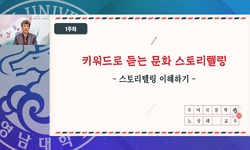본고는 제1차 세계대전 당시 일본 육군이 구미로 파견한 재외무관들의 보고서를 중점적으로 분석하여, 육군이 대전의 승패 분석을 통하여 어떠한 교훈을 얻었고 그 내용은 각 시기별로 어떻...
http://chineseinput.net/에서 pinyin(병음)방식으로 중국어를 변환할 수 있습니다.
변환된 중국어를 복사하여 사용하시면 됩니다.
- 中文 을 입력하시려면 zhongwen을 입력하시고 space를누르시면됩니다.
- 北京 을 입력하시려면 beijing을 입력하시고 space를 누르시면 됩니다.

일본 육군의 ‘대전의 교훈’ 형성 과정과 스토리텔링 = The Formation Process and Storytelling of “Lessons of the First World War” in Japanese Army
한글로보기https://www.riss.kr/link?id=A100318789
- 저자
- 발행기관
- 학술지명
- 권호사항
-
발행연도
2013
-
작성언어
Korean
-
주제어
제1차세계대전 ; 일본육군 ; 재외무관 ; 총력전 ; 전쟁의교훈 ; 스토리텔링 ; The First World War ; Japanese army ; military attache ; total war ; lesson of war
-
등재정보
KCI등재
-
자료형태
학술저널
-
수록면
65-109(45쪽)
- 제공처
-
0
상세조회 -
0
다운로드
부가정보
국문 초록 (Abstract)
본고는 제1차 세계대전 당시 일본 육군이 구미로 파견한 재외무관들의 보고서를 중점적으로 분석하여, 육군이 대전의 승패 분석을 통하여 어떠한 교훈을 얻었고 그 내용은 각 시기별로 어떻게 변화하였는지를 밝히고자 한 것이다.
대전 발발 직후에 육군은 연합국의 우세를 인정하면서도 군사적 능력에서는 오히려 독일을 높이 평가하였다. 따라서 그러한 독일과 개전한다는 것에 다소의 불안감을 품고 있었고 연합국과 동맹국 중 어느 쪽이 최종적으로 승리할 것인지에 관해서도 의견이 일치하지 않았다.
다음으로 대전 중기에는 육군은 일관되게 연합국보다 독일의 군사력을 높이 평가하였다. 그리고 독일의 선전의 원인을 분석하여 정예군, 국민 교육, 군국주의 등의 교훈을 도출하였는데, 이는 독일 군제의 영향하에서의 육군의 기존의 존재 방식을 정당화하는 것이었다. 한편 러시아의 혁명과 패배 및 미국의 참전을 계기로 육군의 대전 인식은 다소 수정되었지만, 독일의 선전에서 도출한 대전의 교훈은 여전히 유효하였다.
그런 만큼 혁명으로 인한 독일의 패배와 연합국의 승리는 육군에게는 큰 충격이었다. 종전 후 육군은 연합국의 승인 및 독일의 패인 분석을 통하여 국민개병주의, 경제적 자급자족 체제, 병사의 자각에 근거한 복종, 국민 교육 등의 교훈을 도출하였다. 그러나 동시에 육군은 개별 전투에서의 독일의 승리에서 전략ㆍ전술상의 교훈을 얻고자 하였고, 대전의 결과를 ‘정병ㆍ과병주의’(정예군)에 대한 ‘조병ㆍ다병주의’(전시 급조군)의 승리 또는 독일 군국주의에 대한 자유주의ㆍ민주주의의 승리로 보는 시각에도 동의하지 않았다. 그리고 독일과 러시아의 패배를 통하여 ‘사상의 악화’에 대한 육군의 위기감은 더해졌다.
이와 같이 종전 후에 확립된 ‘대전의 교훈’ 중에는 독일의 선전, 러시아의 패배, 독일의 최종적 패배와 연합국의 승리 등 대전의 각 단계에서 도출된 교훈들이 혼재되어 있었고, 그 내용도 육군의 존재 방식에 근본적인 개혁을 요구하는 것과 국내외 정세의 변화로부터 기존의 존재 방식을 고수하고자 하는 것이 동시에 존재하고 있었다. 이처럼 대전의 교훈에 관하여 상충되는 해석이 존재하고 있었기에 대전 후의 개혁 방향을 둘러싼 육군 내 대립은 조정이 곤란하였고, 이를 수습하고 육군의 이익을 실현할 수 있는 지도자의 리더십이 강력히 요청되었다고 할 수 있다.
다국어 초록 (Multilingual Abstract)
This paper analyzes the reports from the military attaches dispatched by Japanese army during the First World War, and reveals the lessons the army learned from the outcomes and how its implications changed over time. Just after the outbreak of the...
This paper analyzes the reports from the military attaches dispatched by Japanese army during the First World War, and reveals the lessons the army learned from the outcomes and how its implications changed over time.
Just after the outbreak of the war, Japanese army admired Germany’s military capacities while recognizing the superiority of the Allies in terms of power. Thus, they were anxious about declaring war against Germany and did not agree on the matter of which side would be the final winner between the Allies and the Central Powers.
Then, in the middle stage of the war, the army was consistent in highly evaluating the military power of Germany than that of the Allies. After analyzing the causes of Germany’s success, the army derived lessons such as elite troops, national education, and militarism. This was a justification of the way of the army"s existence at the present time. On the other hand, the Army"s perception of the war was somewhat modified by Russia"s revolution and defeat and America"s participation in the war, yet the lessons from Germany’s success were still valid.
For that reason, Germany’s defeat and the Allies" victory were a great shock for the army. After the war, the army derived various lessons from this, which involved the universal conscription system, the self-sufficient economic system, the soldiers" obedience based on self-awareness, and national education. However, the army also tried to learn strategic and tactical lessons from Germany’s successes in individual battles, and they did not agree with the view that the outcome of the war meant the victory of wartime improvisational army over the elite troops, or the victory of liberalism and democracy over German militarism. Besides, the army felt a crisis in "the deterioration of the thought" by Russia and Germany"s defeat.
The “lessons of the First World War” were derived from mixed causes at each stage of the war such as Germany’s success, Russia’s defeat, Germany"s final defeat and the Allies" victory. If we look at the implications of the lessons, we can see the coexistence of the demand for fundamental changes in the army"s system and the demand for status quo. Because of the conflicting interpretations of the lessons, there was difficulty in adjusting the conflicts over the issues of reform within the army. Thus, it can be argued that the issue of strong leadership had become a pivotal request at that time in order to deal with the conflicts and to enhance the interests of the Army.
목차 (Table of Contents)
- 국문초록
- Ⅰ. 머리말
- Ⅱ. 대전 발발 직후의 승패 예측
- Ⅲ. 대전 중의 군사력 평가와 그 교훈
- Ⅳ. 대전 후의 승패 분석과 그 교훈
- 국문초록
- Ⅰ. 머리말
- Ⅱ. 대전 발발 직후의 승패 예측
- Ⅲ. 대전 중의 군사력 평가와 그 교훈
- Ⅳ. 대전 후의 승패 분석과 그 교훈
- Ⅴ. 맺음말
- 참고문헌
동일학술지(권/호) 다른 논문
-
- 건국대학교 스토리앤이미지텔링연구소
- 고경선(Ko, Kyeong-seon)
- 2013
- KCI등재
-
- 건국대학교 스토리앤이미지텔링연구소
- 김수영(Kim, Soo-young)
- 2013
- KCI등재
-
- 건국대학교 스토리앤이미지텔링연구소
- 정진헌(Jeong, Jin-heon)
- 2013
- KCI등재
-
- 건국대학교 스토리앤이미지텔링연구소
- 정한아(Chung, Han-ah)
- 2013
- KCI등재




 DBpia
DBpia






